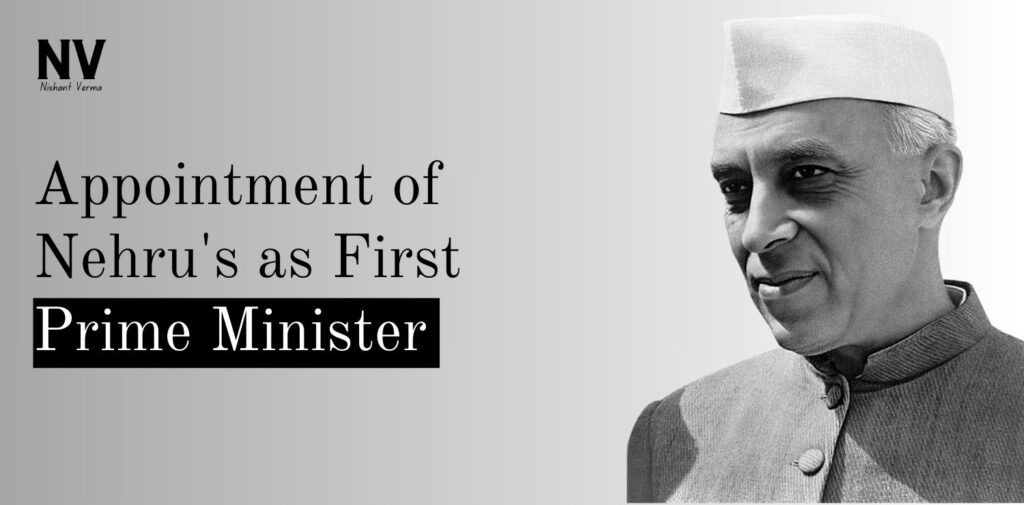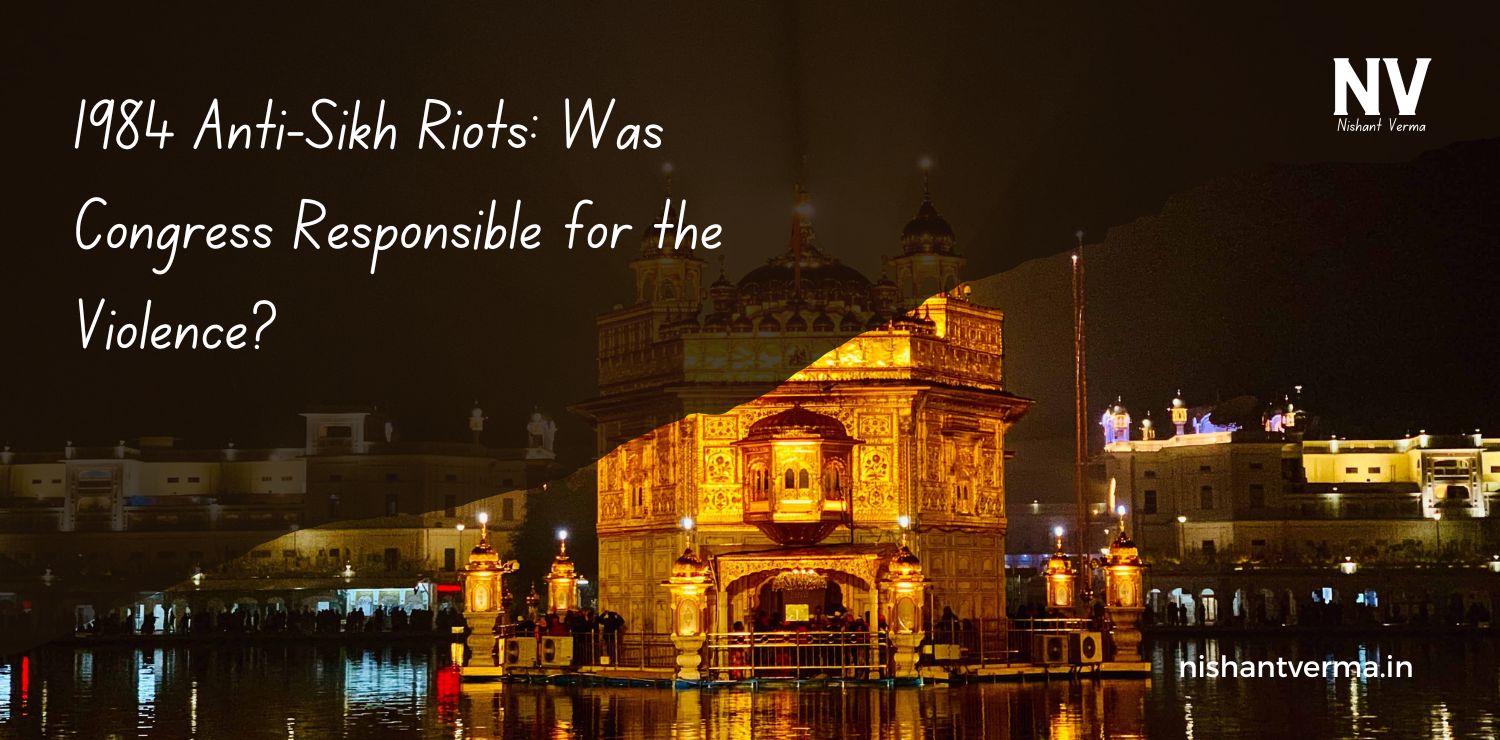After India gained independence in 1947, the Congress Working Committee had to decide who would become the first Prime Minister. During this process, Sardar Vallabhbhai Patel received the majority of nominations from the Pradesh Congress Committees (PCCs). However, Mahatma Gandhi, the most influential leader at the time, intervened and endorsed Jawaharlal Nehru instead, a move that significantly altered the decision.
Why Jawaharlal Nehru’s as First Prime Minister Was Chosen Over Patel?
Gandhi’s Influence and Personal Preference: Despite Patel’s overwhelming support, Gandhi’s endorsement of Nehru was crucial. Mahatma Gandhi believed that Jawaharlal Nehru had a more modern and progressive vision for India, which included his secular stance and internationalist outlook. Gandhi felt that Nehru, with his popularity among the masses and connection with youth, was better suited to represent the newly independent nation on the global stage.
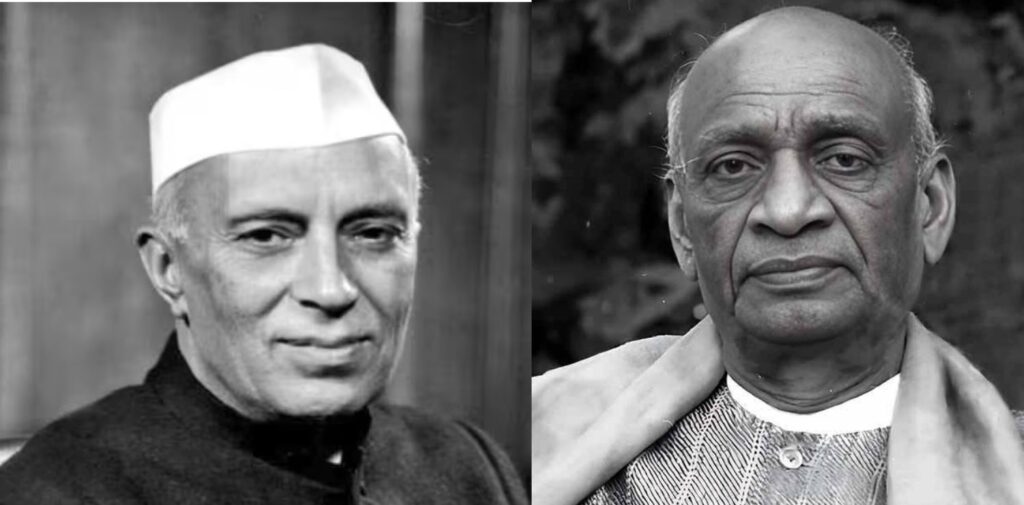
Nehru’s Position on Minorities: One of the arguments often cited for Gandhi’s preference was Nehru’s commitment to safeguarding the interests of minorities, especially Muslims. In contrast, there was a perception that Patel, known for his decisive role in the integration of princely states, might adopt a harder stance on communal issues. Gandhi was concerned that Patel’s approach could alienate Muslims and further communal tensions post-Partition.
Nehru’s Alignment with Gandhi’s Ideals: Nehru was seen as more aligned with Gandhi’s vision for India. Gandhi viewed Nehru as someone who would keep India committed to the ideals of secularism, socialism, and democracy. Gandhi was also aware that Nehru had been a staunch supporter of his movements and philosophy for decades.
Analysis: Nehru and Gandhi’s Real Intentions
Critics often argue that the decision to choose Nehru was not transparent and ignored democratic principles within the party. Many believe that Gandhi’s endorsement had more to do with personal biases and less to do with democratic decision-making.
The Question of Sardar Patel’s Exclusion: Sardar Patel was a strong contender and had immense support from Congress leaders and the public. His exclusion is viewed by some as a deliberate move to ensure that someone more pliable to Gandhi’s influence took the helm.
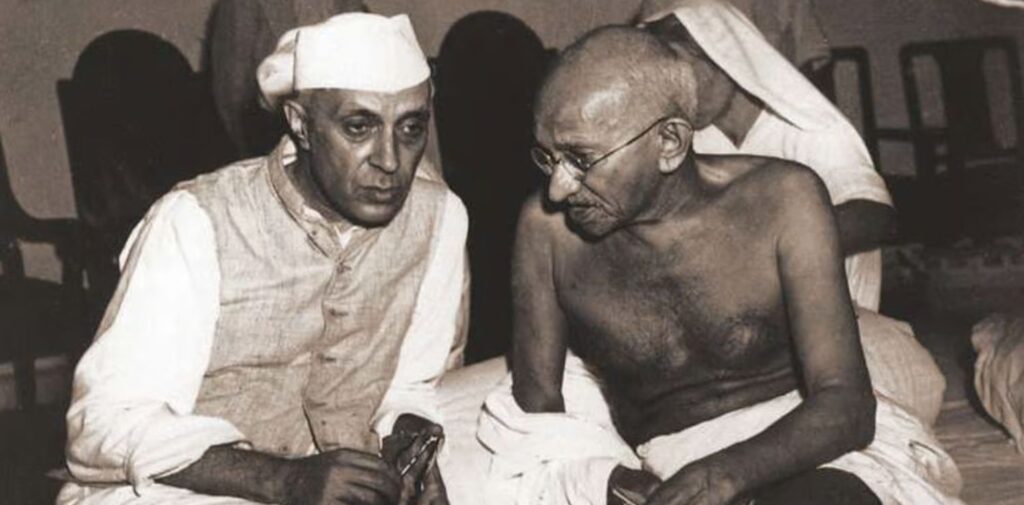
Nehru’s Leadership and Impact on India: Nehru’s tenure as Prime Minister was marked by his efforts to build a secular and democratic India. However, his policies towards Muslims and minorities have been viewed as appeasement by some historians, leading to long-term political and social challenges.
Uniform Civil Code and Nehru’s Stance: Nehru’s ambivalence on the implementation of the Uniform Civil Code (UCC) is another point of contention. While he agreed in principle with the need for a UCC, he did not push for it, fearing backlash from conservative elements within the Muslim community. This decision has had enduring repercussions, with critics blaming Nehru for perpetuating personal laws that differentiate citizens based on religion.
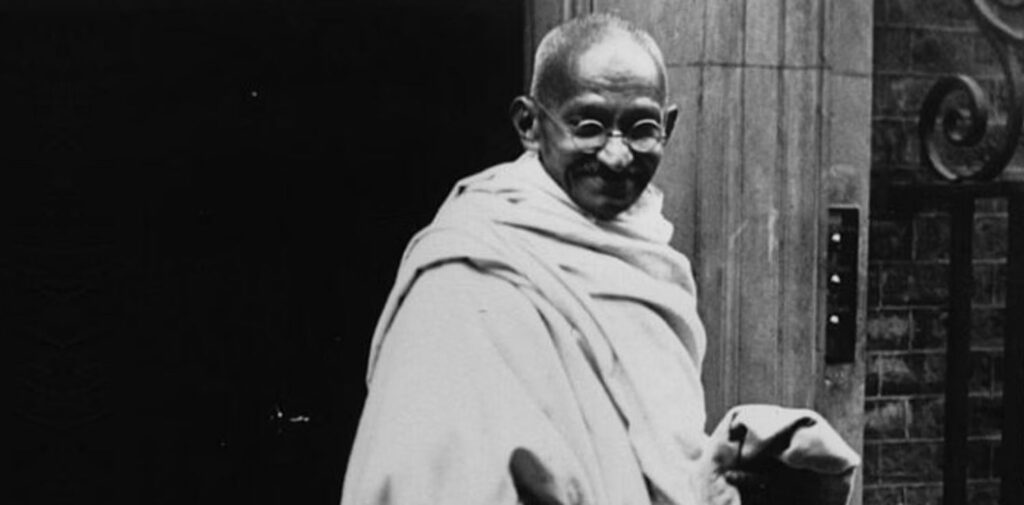
Gandhi’s Role: Advocate for Secularism or a Political Manipulator?
While Gandhi is hailed as the “Father of the Nation,” his role in Nehru’s ascension has been a point of debate. Many believe that his decision was less about India’s democratic future and more about ensuring that someone who mirrored his own beliefs, especially on communal harmony and secularism, became Prime Minister. Critics argue that Gandhi’s endorsement of Nehru ignored the democratic choice within the Congress party and set a precedent for favoritism.
Conclusion
The process of choosing India’s first Prime Minister was complex, and Gandhi’s role in ensuring Nehru’s appointment is a topic that continues to evoke strong opinions. While Nehru’s contributions to building modern India are undeniable, the lack of transparency in his selection and his policies towards minorities have made him a controversial figure. Similarly, Gandhi’s intervention in this process raises questions about the true nature of democratic decision-making within the Congress party and his ideological leanings.
This analysis shows that while Gandhi and Nehru projected themselves as protectors of Indian secularism and unity, their actions, in reality, might have been driven more by personal biases and preferences, which had long-lasting impacts on Indian politics and society.

